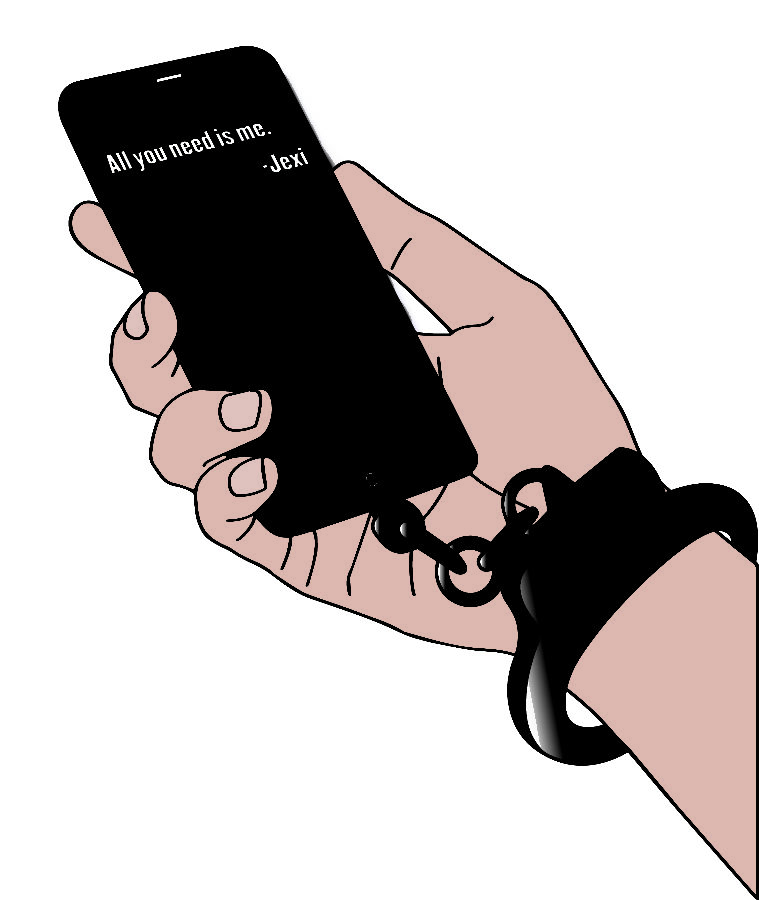Jon Lucas and Scott Moore’s “Jexi” is a film about a man who finds himself being controlled by a sentient, Siri-like entity named Jexi. While this concept works better as a mediocre SNL skit from 2009, a team of passionate actors, competent writers and innovative directors could still do a lot with it to create a decent, or even just bearable, movie-watching experience. “Jexi” clearly did not have any of these things. It fails in almost every aspect as a film and is reflective of all the worst elements of the comedy film genre.
The boring, predictable plot is a prime example of this. The movie follows the main character, Phil, as he is forced to confront his fear of human connection by artificial intelligence on his new phone. He develops the typical shallow love interest and goes down the stereotypical path of becoming a better person overnight, a path that far too many comedy movie protagonists take.
There is not a single plot point that is compelling or even unexpected. As soon as Alexandra Shipp’s character comes into play, the audience knows that she will be the love interest. When Jexi starts acting nice to Phil, it becomes obvious that the AI will develop an obsession over him, and so on. These predictable plot points wouldn’t be such a big deal if the story wasn’t completely predicated on plot twists. The integrity of the entire story is completely derailed by the downright lazy writing.
Since the plot is terrible, “Jexi” is forced to rely on compelling characters and impactful comedy to stay afloat. Unfortunately, both of these things are just as weak as the story structure. Phil, played by Adam Devine of “Workaholics” fame, is a complete blank slate throughout the entire film. There is not a single personality trait that a person could use to describe him, and the supposed growth that he goes through as a character is equally shallow. The only thing that changes about him is that he becomes less attached to his phone.
Shipp’s character, Cate, is just as one-dimensional. Her only purpose in the film is to serve as a motivator for Phil by being his love interest. She instantly forgives all of his creepy behavior and has absolutely no personality or character development beyond being Phil’s girlfriend. This is reflective of the tired trope of using female characters as no more than an incentive for the male protagonist, which is boring and slightly regressive.
The comedy is no better, relying almost exclusively on pure vulgarity to pass as humorous. At first, the novelty of having a robotic AI yell profanities at a grown person is funny enough to
function as a joke, but it gets old fast. When the entirety of a movie’s comedy is based around this kind of joke, it becomes mind-numbing. Jexi, as a character, is perhaps the only source of comedy in the entire movie, but the writer’s repetitive use of the aforementioned style of humor renders her completely useless in this regard. This means that the movie practically has no real source of comedy as a comedy film.
All of these things are far too common within comedy movies as a whole. The trend of having a bare-bones plot and shallow and uninteresting characters is usually explained as a way to allow the comedy to take center stage, but “Jexi” highlights the need to have something more to fall back on.
Comedy movies should function as more than just a vehicle for jokes, they should serve to be competent films in their own right. This way, if the comedy is too niche, or just too simplistic and repetitive in the case of “Jexi,” the movie can still be an enjoyable experience. It is incredibly easy for comedy to fall flat, especially in the current social climate. Having an interesting plot and well-developed characters can help the comedy genre navigate this reality.
“Jexi” is a sad allegory for the current state of comedy movies with directors Jon Lucas and Scott Moore of “Hangover” delivering a shockingly abysmal experience. The boring plot, shallow characters and ineffective comedy all come together to make this movie nothing more than an example of great artists phoning it in for a paycheck. The film is an example to future comedy filmmakers of what to avoid at all costs.

































